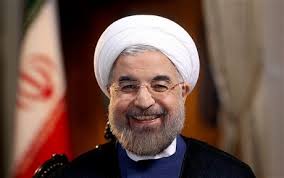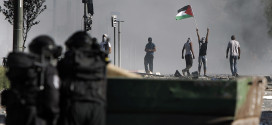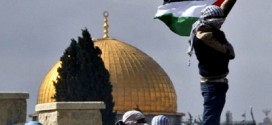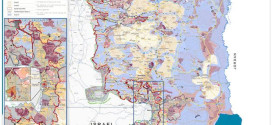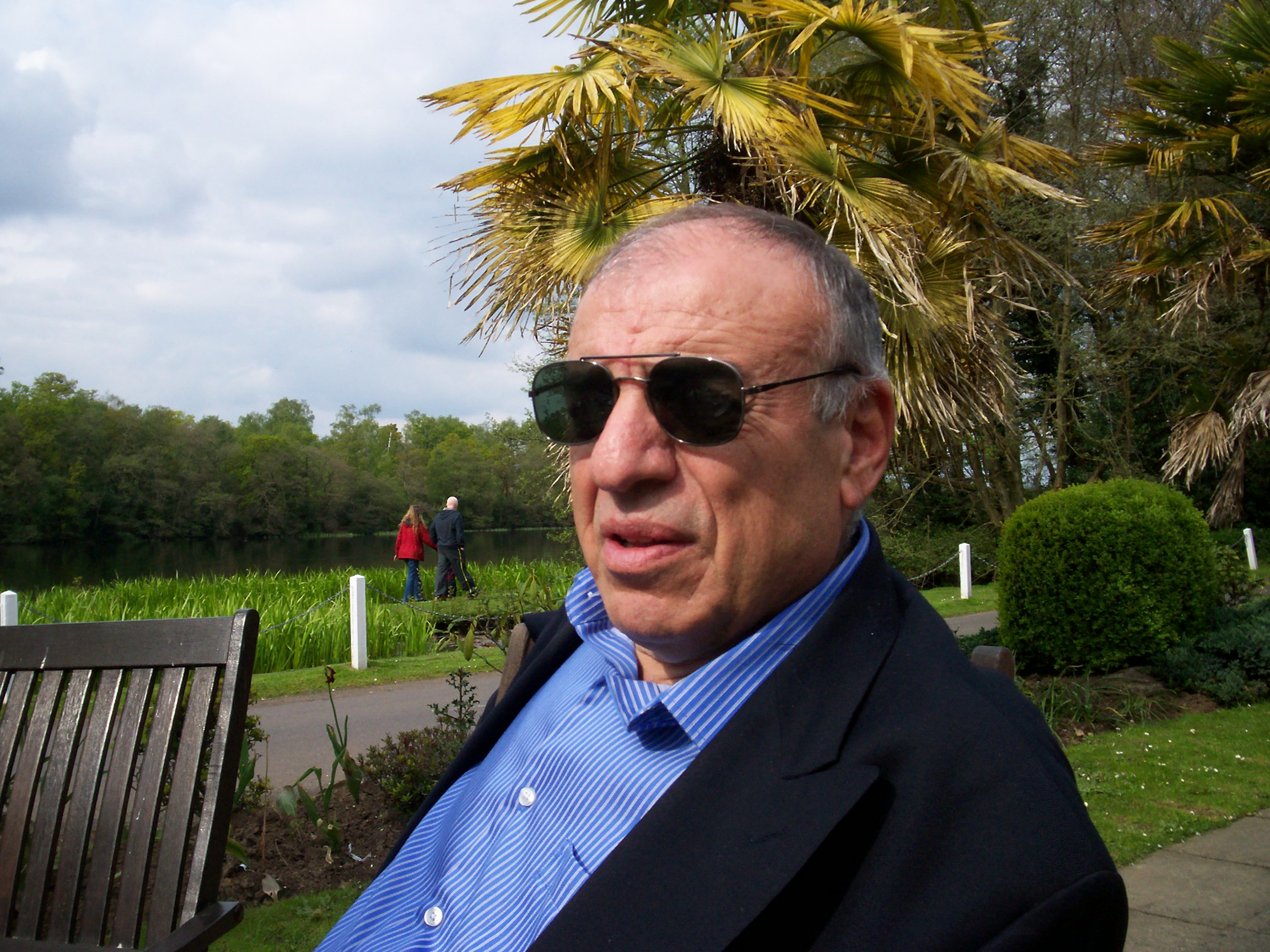BY Nehad Ismail
Can we trust the smiling Rouhani over Iran’s nuclear intentions? The Iranian Opposition exposes the regime’s duplicity, writes Nehad Ismail
In 2006 the Iranian leadership announced the successful enrichment of uranium. The International Atomic Energy Authority (IAEA) put the issue of Iran’s nuclear program before the UN Security Council. The UN Security Council passed several resolutions urging Iran to end its enrichment activities.The then Iranian President Ahmadinejad stated that his people would not yield to threats from Western states, and that Iran would continue with its nuclear research program.
In November 2011, the IAEA published a report revealing advanced Iranian design for a nuclear warhead, developed with the help of former Soviet scientists. Amid the furor over Tehran’s nuclear programme, Iran threatened to close the Strait of Hormuz if the West widened sanctions against the country.
The Strait of Hormuz links the Gulf oil-producing states of Bahrain, Kuwait, Qatar, Saudi Arabia and the United Arab Emirates with the Indian Ocean. The US maintains a naval presence in the Gulf, primarily to ensure the oil routes remain open.
Since then, Iran has been at some pains to reassure the West that her nuclear development is innocuous, but messages out of Tehran are mixed, and many remain unconvinced.
In an article in the Guardian on 15th October 2013, John R. Bolton, the former US Ambassador to the UN said: “We cannot verify, and must not trust, Iran’s promises on nuclear weapons. Ignore the ‘moderate’ smokescreen. Sanctions have failed, so our choice is stark: use military force or let Tehran get the bomb”.
Iran’s State-run Fars news agency revealed on the 3rd May 2014 that, on the eve of arrival of UN nuclear inspectors in Tehran, Atomic Energy Organisation of Iran (AEOI) said that it was denying the international inspectors access to Parchin nuclear facility.
The Organisation’s spokesman, Behrouz Kamalvandi, stated that “legally, they have no right to visit Parchin since we are not implementing the Additional Protocol (to the NPT), and, even if we did, access needs to be managed”.
Kamalvandi underlined that the regime has no intention to scale back its nuclear program, and that activities at the nuclear facilities will not be suspended.
The IAEA inspectors have, according to opposition sources, made frequent requests over the last three years to visit to a certain section of Parchin to study unknown aspects of the regime’s nuclear weapons program. The regime has steadily refused. During this period, major changes have been implemented in sections of Parchin, erasing any trace or evidence of nuclear tests.
Statements issued by the AEOI demonstrate that, contrary to all the claims made in recent months, the regime continues to deceive the international community in its covert pursuit of military nuclear capability. Its supposed transparency is a sham.
In recent years, the regime has concealed parts of its nuclear weapons project in conventional military sites, preventing IAEA access to these sites on the pretext that inspection of these sites is not within the scope of the Authority’s mandate.
The Iranian Opposition once again underscores that the implementation of the Additional Protocol by the regime, and unhindered and unconditional access of IAEA to all of regime’s nuclear sites and specialists, is an essential and indispensable step to ensure that the State does not achieve military nuclear capability.
World powers have long suspected that Iran is developing this capability, an allegation which Tehran has repeatedly denied.
Barely hours after the signing of an interim agreement in Geneva (24th November 2013), designed temporarily to freeze Iran’s nuclear enrichment programme, President Rouhani said the interim deal recognised Iran’s nuclear “rights”. The BBC reported that, after days of intense talks in Geneva, Iran agreed to curb some of its nuclear activities in return for about $7bn (£4.3bn) in sanctions relief.
President Obama welcomed the deal, saying it included “substantial limitations which will help prevent Iran from building a nuclear weapon”. Iran agreed to give better access to inspectors, and to halt some of its work on uranium enrichment.
However, a day before agreement was reached, President Rouhani assured the Iranian Parliament that Iran had told its negotiating partners, “We will not answer to any threat, sanction, humiliation or discrimination.” According to Al Arabiya, 24 hours before agreement was reached, Iran announced that it cannot accept any agreement which does not recognise its right to enrich uranium;
a demand the United States and its European allies have repeatedly rejected.
In March 2014, President Rouhani insisted that Iran would not abandon its enrichment of uranium, after US senators called for it to be denied any such right under a long-term nuclear deal. State media quoted Rouhani to a cabinet meeting: “The world has admitted that Iran is, and will be, among the countries which have nuclear technology, including enrichment, and there is no doubt about this for anyone.”
Interestingly, Iran’s supreme leader Ayatollah Ali Khamenei said on 9th April 2014 that Iran has backed talks with world powers, but warned that Tehran will never give up its nuclear programme. Khamenei said Iran had agreed to the talks to “break the hostile atmosphere” with the international community.
On 20th April 2014, Iran’s nuclear energy chief confirmed that the Islamic Republic was entitled to enrich uranium to the weapons-grade level of 90%, and that Tehran was planning to construct four new nuclear plants with the help of Russia, This contradicts a statement by Ali Akbar Salehi, the head of the AEOI: “Iran had agreed to limit its enrichment activities to the 5% level, under the terms of an interim deal in November last year with the six powers under which it curbed some uranium enrichment activities”. He also said Iran is planning to build four new nuclear power plants in the coming years, to accompany Iran’s sole nuclear power plant, Bushehr.
On 11th May 2014, President Rouhani announced that “Iran will not retreat one step in the field of nuclear technology… we will not accept nuclear apartheid.”
Which Iranian statements we are supposed to believe?
Meanwhile US Secretary of State John Kerry told a Senate Foreign Relations Committee hearing in April: Iran can produce fissile material for an atomic weapon in two months. (He subsequently corrected himself, suggesting 6-12 months.)
Talks between Iran and the United States and five other world powers continue in Vienna, on and off, to reach a broad settlement over its disputed nuclear programme. But the flood of belligerent and arrogant statements coming out of Tehran call into question Iran’s intention to abide by any agreement.
Regional Apprehension:
On Sunday 24th November 2013, Prime Minister Netanyahu condemned the international community’s historic nuclear deal with Iran, while Saudi Arabia remained conspicuously quiet, reflecting the jitters felt throughout the Middle East over Iran’s acceptance on the global stage.
Meanwhile the Arab States in the Gulf region are wary of Iran’s real intentions. Iran has always denied that it is pursuing a nuclear weapon programme. In Saudi Arabia the perception is that the Iranian nuclear programme is designed to threaten the Kingdom, and its allies in the Gulf. In the wider Middle East, Iran is not trusted. Most observers believe a temporary agreement will be flouted as soon as the six-month freeze is over. Iran will resume its enrichment programme without facing severe penalties. Most Arabs believe a stronger Iran would be better able to keep President al Assad in power in Syria, and also threaten its Sunni adversaries, such as Saudi Arabia and the UAE.
Does the world trust Iran to honour its obligations? Would appeasing Iran work in easing tensions in the region? The belligerent and often conflicting statements coming out of Tehran are not reassuring.
Many experts are not fooled by the charm offensive; everybody in the Middle East knows that Iran is seeking nuclear weapons. Rouhani can smile and say nice things, but his nuclear objective remains unchanged.
 العربي الديمقراطي The Latest From The Arab World
العربي الديمقراطي The Latest From The Arab World


